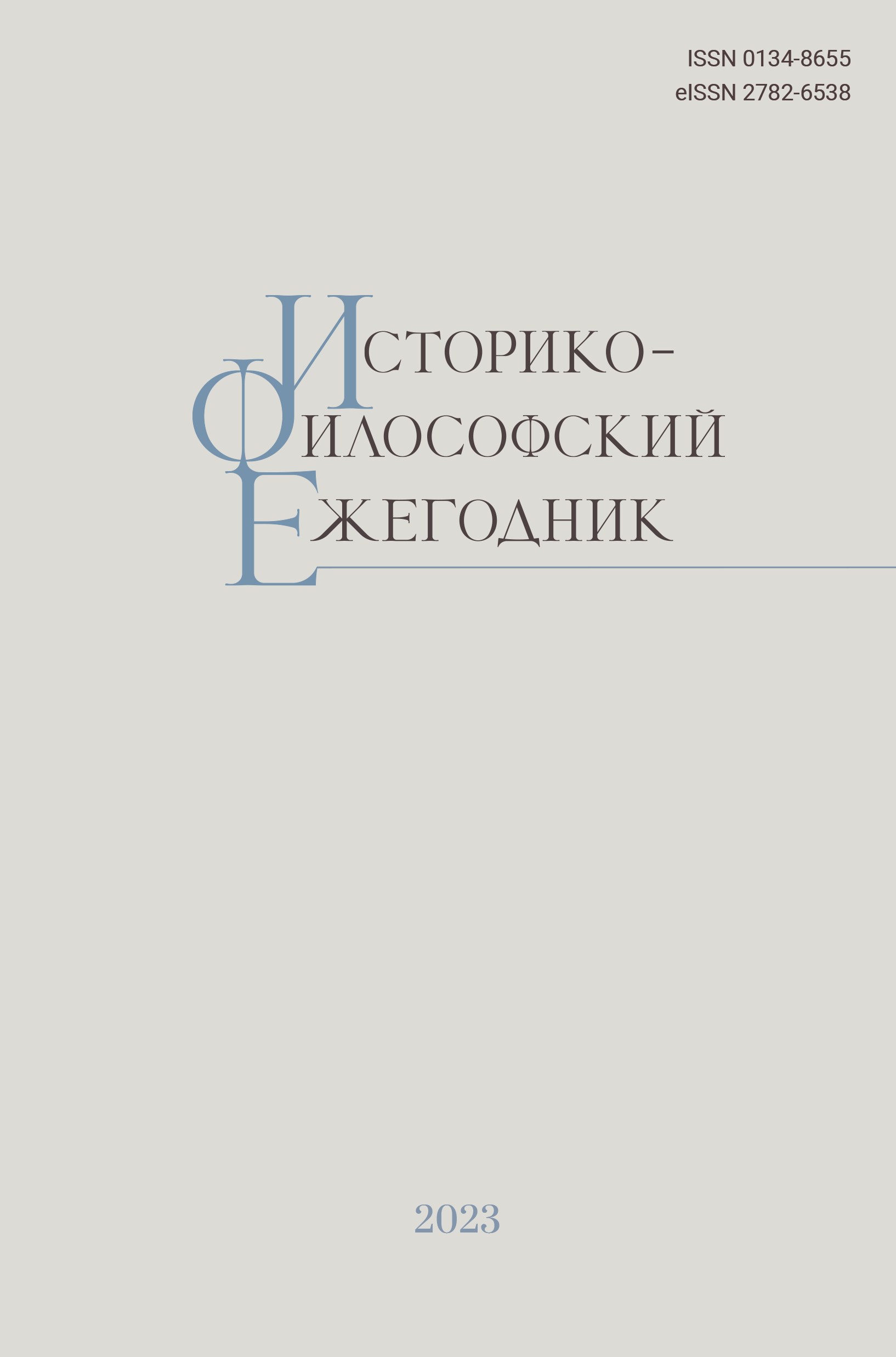Western Sources of Russian neo-Leibnizianism
Keywords:
neo-Leibnizianism, German idealism, French spiritualism, personalism, intuitionismAbstract
The article analyzes the reception panorama in the context of Russian neo-Leibnizianism concerning the ideas of various Western philosophers from the 19th century. This includes mainly representatives of the “second wave” of German idealism such as A. Trendelenburg, G. Lotze, H. Weisse, I.H. Fichte (junior), H. Ulrici, G.T. Fechner, and J.F. Herbart, as well as French spiritualism with figures like Maine de Biran and Charles Renouvier. The article attempts to reveal and demonstrate the features of these authors’ systems, which often receive little attention in research literature. It also aims to analyze the direct influence of these thinkers’ ideas on the formation and evolution of neo-Leibnizianism as a distinct and original direction within Russian thought during this period. Unlike the Marburg or Baden schools of neo-Kantianism, Russian neo-Leibnizianism had no complete analogues in the West. Studying the ideas of A. Trendeleburg and G. Lotze allows for a restoration of the historical and theoretical context for the development of G. Teichmüller’s thought, who is considered the founder of Russian neo-Leibnizianism. Furthermore, it helps understand why Russian neo-Leibnizism was also referred to as “metaphysical personalism”. The ideas of “speculative theists” H. Weise, I.H. Fichte (junior), and H. Ulrici contribute to a better understanding of the theological component of Russian neo-Leibnizianism, particularly evident in the panpsychism of A.A. Kozlov, S.A. Alekseev (Askoldov) and N.O. Lossky’s thought. The psychological constructions proposed by G.T. Fechner and J.F. Herbart find a response in the works of E.A. Bobrov and other representatives of the Yuriev school. The influence of French spiritualism is most apparent in L.M. Lopatin and P.E. Astafiev. Ultimately, the article demonstrates that the reception of these European philosophers’ ideas by Russian neo-Leibnizianism is equally significant as the reception of Leibniz’s own philosophy.

